You know that little bump on your hand? Or maybe the one on your kid’s foot that’s making them limp? You’re probably wondering: what causes a wart?
And hey — you’ve heard the story, right? Touch a frog and you’ll get warts. Spoiler: that’s totally false. Like, 100% myth. But I get it. Warts can be weird, kind of gross, and honestly — a little embarrassing. So let’s talk about them. No shame. No jargon. Just real talk.
The truth is, warts aren’t caused by dirt, bad hygiene, or amphibians. Nope. They’re caused by a virus — specifically, certain strains of the human papillomavirus (HPV). Yeah, that one. Before you panic: this isn’t the same conversation as genital HPV (we’ll get there). This is about the common, usually harmless warts that pop up on hands, feet, face, and yes — even the neck.
So if you’re Googling “causes of warts” or “what causes warts on feet,” you’re in the right place. Let’s break it down — gently, clearly — and finally put some of the myths to rest.
Real Cause

Every single wart — whether it’s on your finger, your child’s knee, or your heel — starts with one thing: HPV.
That’s it. The cause of warts is a virus sneaking into your skin through a tiny cut, crack, or nick. Ever bite your nails? That’s an open door. Shave your face or legs? Those micro-cuts? Boom — entry point. The virus infects the top layer of skin, speeds up cell growth, and suddenly — you’ve got a wart.
Fun fact: there are over 100 types of HPV. About 60 of them cause the common warts we see on hands and feet. Different strains cause different types of warts — like plantar warts or flat facial warts.
And no, you don’t need to be “dirty” to get one. In fact, warts love kids — not because they’re less clean, but because their immune systems are still building strength, and let’s be honest — they’re always getting scraped up.
The Stress Link?
Now, here’s one people ask a lot: Can stress cause warts?
Short answer: not directly. But — and this is a big but — stress can absolutely play a role. When you’re stressed, your immune system weakens. It’s like your body’s security team is running on empty.
So if HPV is hanging around — maybe you walked barefoot in a public shower, or shared a towel — a weakened immune system might not fight it off. That’s when a wart shows up uninvited.
Think of someone pulling double shifts, not sleeping, eating junk food — and then suddenly, a cluster of warts on their hands. Coincidence? Nah. That’s stress opening the door.
Risk Factors
Even if you’re not stressed, some things make you more prone. And knowing them helps you protect yourself.
- Walking barefoot in public showers, gyms, or pools — warm, damp floors are HPV breeding grounds.
- Having eczema or dry, cracked skin — a compromised barrier invites the virus in.
- Biting your nails or picking at hangnails? Tiny cuts = viral highway.
- Sharing towels, razors, or shoes — warts can spread indirectly, too.
And if you’re immunocompromised — say, due to illness, medication, or conditions like HIV — you’re more likely to warts cause long-term issues because your body struggles to keep HPV in check according to WebMD.
Myth Busting
Alright, let’s clear the air. Because for something so common, warts come with a TON of misinformation.
Do frogs cause warts?
No. Just… no. Frogs and toads have bumpy skin, sure. But they don’t carry HPV. You can pick up a frog, hug it, kiss it (not recommended), and still not get a wart.
The real culprit? Human-to-human contact. Sharing towels. Walking barefoot. Touching a wart and then your face. That’s how they spread.
Does herpes cause warts?
No. Different virus. Herpes is caused by HSV (herpes simplex virus). Warts are from HPV. Totally different families. Totally different treatments. Don’t let the name confusion trip you up.
Can warts cause cancer?
Most warts? No. The ones on your hands or feet? Completely harmless. They’re caused by low-risk HPV strains.
But — and this is important — some high-risk HPV types (like HPV-16 and HPV-18) are linked to cervical, anal, and throat cancers. These are usually the strains behind genital warts.
Still, the vast majority of people with common warts are in no danger. The National Cancer Institute confirms that typical skin warts are not precancerous according to a source.
Where They Appear
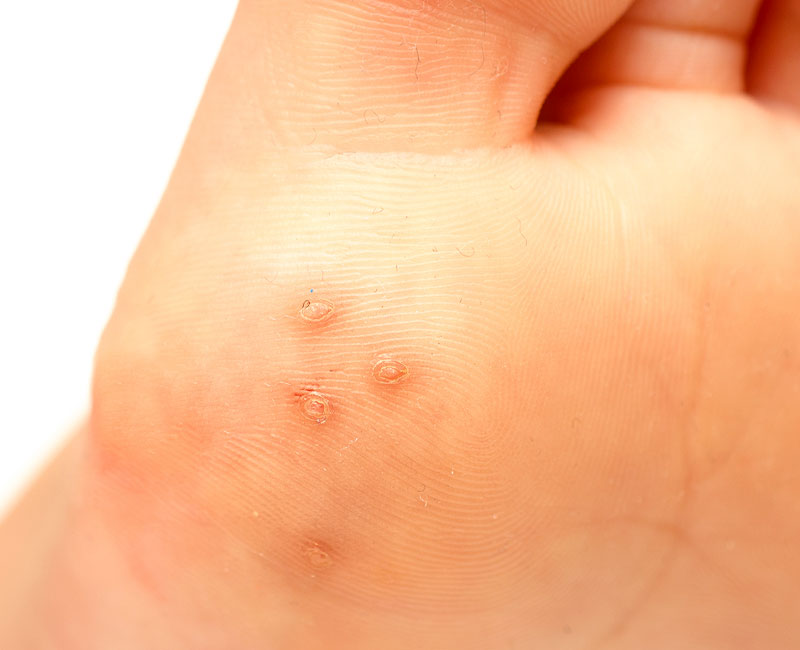
Warts can technically grow anywhere. But location tells a story — about how you got it, and what kind it might be.
Plantars wart causes
“Plantar” means “on the sole.” So plantar warts are on the bottom of your feet. They’re caused by HPV entering through cracks in the skin — especially in damp environments.
They grow inward due to pressure, so they’re often covered by a callus. And yeah — they hurt. People describe it like walking on a pebble.
Athletes, gym-goers, swimmers — you’re at higher risk. Flip-flops in the locker room? Not optional.
Facial warts cause
These are usually flat warts — small, smooth, and light-colored. Common in teens, especially boys who are starting to shave.
Why? Tiny nicks from the razor let HPV in. And if you already have a wart on your hand? Touching your face afterward can spread it.
Warts neck causes
Yep, you can get them there too. Often these are common or filiform warts — the kind that look like little skin tags.
They spread easily by touching. Maybe you scratched a wart on your hand, then your neck. Boom — new guest.
Perianal warts causes
These are a type of genital wart. Caused by specific HPV strains and usually spread through skin-to-skin contact during anal sex.
They require medical diagnosis and treatment. Don’t try home remedies here — see a healthcare provider.
Water warts causes
Wait — “water warts”? That’s actually a misnomer. Most people mean molluscum contagiosum — a different virus entirely, caused by a poxvirus, not HPV.
Small, pearly bumps with a dimple in the center. Also spreads in pools or by sharing towels. Looks like a wart, acts like a wart — but it’s its own thing.
Who Gets Them?
Kids and warts
Kids are the #1 targets. Not because they’re “dirty” — but because they’re active, they’re always getting little cuts, and they share everything.
Daycare, school, playgrounds, sports — all HPV hot zones. And their immune systems? Still learning the ropes. So warts spread fast.
Does HIV cause warts?
HIV doesn’t cause warts — but it does make them more likely. Because HIV weakens the immune system, the body can’t fight off HPV as well.
So people with HIV often get more warts, larger warts, and ones that are harder to treat.
But again — having a wart does not mean someone has HIV. That kind of assumption? Not cool. Let’s keep it factual and kind.
Pain and Warts
Can warts cause pain?
Some, yes — especially if they’re in a high-pressure spot.
Plantar warts? Ouch. Common warts on fingers? Might throb if you’re always using your hands. Periungual warts (around nails)? Can distort the nail and hurt like crazy.
But most warts? Totally painless. Just annoying.
Prevention Tips
Can you stop warts before they start? Not 100%, but you can stack the odds in your favor.
| Prevention Method | How It Helps |
|---|---|
| Wear flip-flops in public showers | Blocks HPV from entering through cuts on feet |
| Don’t share towels or razors | Prevents indirect spread of HPV |
| Treat cuts and scrapes quickly | Keeps skin barrier strong and closed |
| Stop biting nails | Removes a major entry point for HPV |
| Boost your immune health | Helps body fight off the virus |
➤ May also be interested in Home Remedies for Warts Check out 18 Best Home Remedies for Warts.
And about the HPV vaccine — does it help with common warts? Not directly. It’s designed to protect against cancer-causing and genital wart strains (HPV-6, 11, 16, 18, and others). But some studies suggest it might offer cross-protection in rare cases according to research. Still, the best prevention for hand and foot warts is smart habits.
Medical Advice

When to see a doctor?
Most warts go away on their own — sometimes in months, sometimes in a couple of years. But you don’t always have to wait it out.
See a dermatologist if:
- The wart is painful, bleeding, or growing fast
- It’s on your face, genitals, or anus
- You’re not sure it’s a wart (could be skin cancer or molluscum)
- You’ve tried home treatments and it’s not working
Dermatologists can freeze, burn, or even inject warts. And no — it’s not as scary as it sounds.
Are warts contagious?
Oh, absolutely. They spread through:
- Direct contact — touching someone’s wart
- Indirect contact — using their towel, shoes, or razor
- Auto-inoculation — touching your own wart, then another body part
So if you’ve got one — try not to pick. Wash your hands. Keep it covered.
Final Thoughts
So, what causes warts? Let’s say it one more time: HPV. A virus. Not dirt. Not frogs. Not bad luck.
They’re common. They’re usually harmless. And for most people, they’ll vanish on their own when the immune system finally says, “Hey, get out.”
But they can spread. They can hurt. And they can make you self-conscious. So it’s okay to want them gone. It’s okay to ask for help.
Protect your skin. Wear flip-flops. Support your immunity. Be kind to yourself — and to others with warts, too. We’ve all got something we’re dealing with.
If you’re still wondering, “What is the cause of a wart?” — now you know. And if you’ve got questions, don’t hesitate to ask. Seriously. Warts are nothing to whisper about.
We’re all in this together, right?

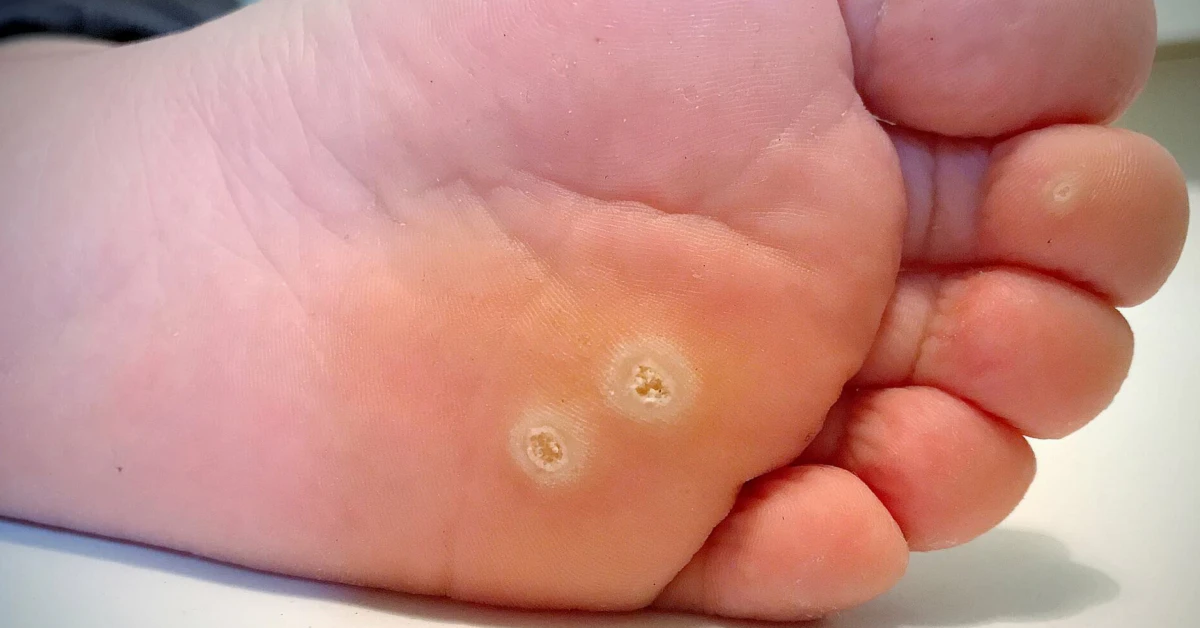

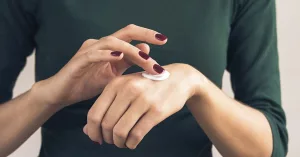


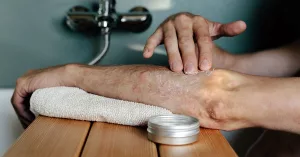
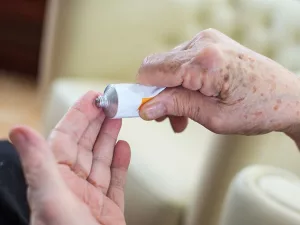
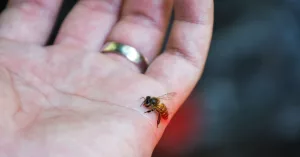
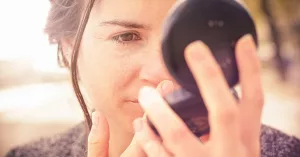


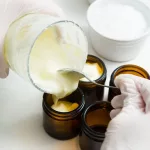
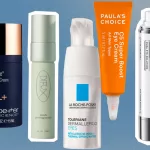


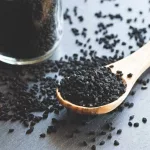

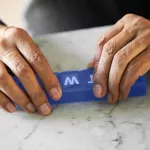
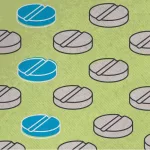





Leave a Reply
You must be logged in to post a comment.